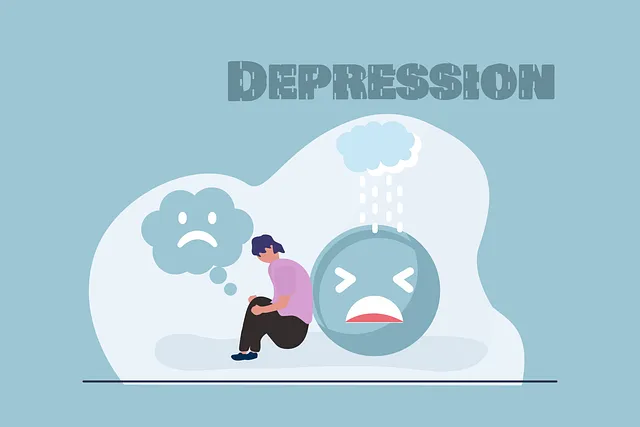Kaiser Permanente, a leading healthcare provider, prioritizes cultural competency training to enhance patient care in diverse communities, including Lone Tree. Their comprehensive programs go beyond basic diversity workshops, offering tools for empathy, ethical decision-making, and culturally sensitive care. By integrating mental health services, mood management strategies, and advocacy, Kaiser Permanente ensures supportive care for all patients' well-being. This holistic approach, coupled with training to mitigate burnout among healthcare professionals, significantly improves patient outcomes and addresses mental health concerns in Lone Tree and surrounding areas.
“In today’s diverse healthcare landscape, cultural competency training is no longer an option but a necessity. This article explores how Kaiser Permanente approaches mental health services, with a specific focus on their strategies for serving diverse populations in Lone Tree and beyond. We delve into the impact of cultural competency on mental health care delivery, offering insights into improved patient outcomes and enhanced service quality. Understanding these initiatives is crucial for healthcare providers aiming to navigate the complex cultural tapestry of modern medicine.”
- Understanding Cultural Competency Training in Healthcare: A Necessity in Modern Practice
- Kaiser Permanente's Approach to Mental Health Services: An Overview
- The Impact of Cultural Competency on Mental Health Care Delivery
- Strategies for Effective Training: Enhancing Care for Diverse Populations in Lone Tree and Beyond
Understanding Cultural Competency Training in Healthcare: A Necessity in Modern Practice

Cultural competency training is a vital component of modern healthcare practice, reflecting the diverse nature of communities we serve. In today’s interconnected world, healthcare providers must understand and appreciate the cultural nuances of their patients, especially when offering services like mental health care in areas such as Lone Tree, where populations are increasingly diverse. Kaiser Permanente, recognizing this need, has incorporated comprehensive training programs that go beyond basic diversity workshops.
These programs equip healthcare professionals with the skills to build empathy, navigate complex ethical scenarios, and provide culturally sensitive care. Incorporating strategies for mood management, mental health policy analysis and advocacy, and empathy building ensures patients from all backgrounds feel heard, understood, and supported in their journey towards well-being.
Kaiser Permanente's Approach to Mental Health Services: An Overview

Kaiser Permanente, a leading healthcare organization, has made significant strides in addressing mental health concerns within its services, particularly at its Lone Tree location. Their approach emphasizes holistic care and cultural competency training for healthcare providers, recognizing the impact of these skills on patient outcomes. By integrating mental health services seamlessly into primary care settings, Kaiser Permanente aims to reduce stigma and increase accessibility.
The Healthcare Provider Cultural Competency Training programs at Kaiser Permanente focus on enhancing communication, empathy, and understanding across diverse cultural backgrounds. These initiatives are crucial in building resilience against burnout, a prevalent issue among healthcare professionals. Through workshops, resources, and ongoing support, providers gain confidence in managing mental health issues, ensuring they can offer compassionate and effective care to all patients, regardless of their background or location, be it the bustling city or quieter suburban areas like Lone Tree.
The Impact of Cultural Competency on Mental Health Care Delivery

Cultural competency is a cornerstone of effective mental health care delivery, and its impact is profoundly felt in communities like Lone Tree where Kaiser Permanente offers services. In the context of mental health, cultural understanding goes beyond mere awareness; it involves adopting Mind Over Matter Principles to create an inclusive environment that respects diverse belief systems and promotes trust between patients and healthcare providers. This is crucial in addressing the Mental Illness Stigma Reduction Efforts, as many individuals from various cultural backgrounds may hesitate to seek help due to fear of judgment or misunderstanding.
By integrating Social Skills Training into their practices, Kaiser Permanente ensures that mental health professionals can communicate effectively with patients from different ethnic, racial, and socio-economic groups. This training equips providers with the necessary tools to navigate complex cultural nuances, thereby enhancing patient engagement and satisfaction. Ultimately, these efforts contribute to improved treatment outcomes, as culturally competent care fosters better adherence to therapy, medication, and self-care practices, leading to more positive mental health journeys for all patients served in Lone Tree.
Strategies for Effective Training: Enhancing Care for Diverse Populations in Lone Tree and Beyond

Effective cultural competency training in healthcare is essential to enhancing care for diverse populations, including those in Lone Tree and beyond. Kaiser Permanente, known for its comprehensive services, offers valuable resources such as Crisis Intervention Guidance tailored to address mental health concerns. By equipping healthcare providers with tools like this, they can better navigate the emotional regulation needs of patients from various cultural backgrounds.
The training should incorporate practical Burnout Prevention Strategies for Healthcare Providers. This is crucial for maintaining a healthy work-life balance, especially when dealing with demanding populations. Incorporating interactive workshops and real-life case studies can make the learning experience more engaging and impactful. By fostering an environment that values diversity and mental health awareness, healthcare providers in Lone Tree and surrounding areas can offer improved care, ensuring every patient receives respectful, culturally sensitive treatment, and access to essential services like mental health support from Kaiser Permanente when needed.
Cultural competency training is a game-changer in healthcare, especially with diverse populations. Kaiser Permanente’s approach, as seen in their mental health services in Lone Tree and beyond, emphasizes understanding and respecting different cultural contexts. This strategy significantly improves care delivery, fostering a more inclusive environment. By implementing effective training strategies, healthcare providers can enhance their ability to serve diverse communities, ensuring that every patient receives the best possible care tailored to their unique needs.






